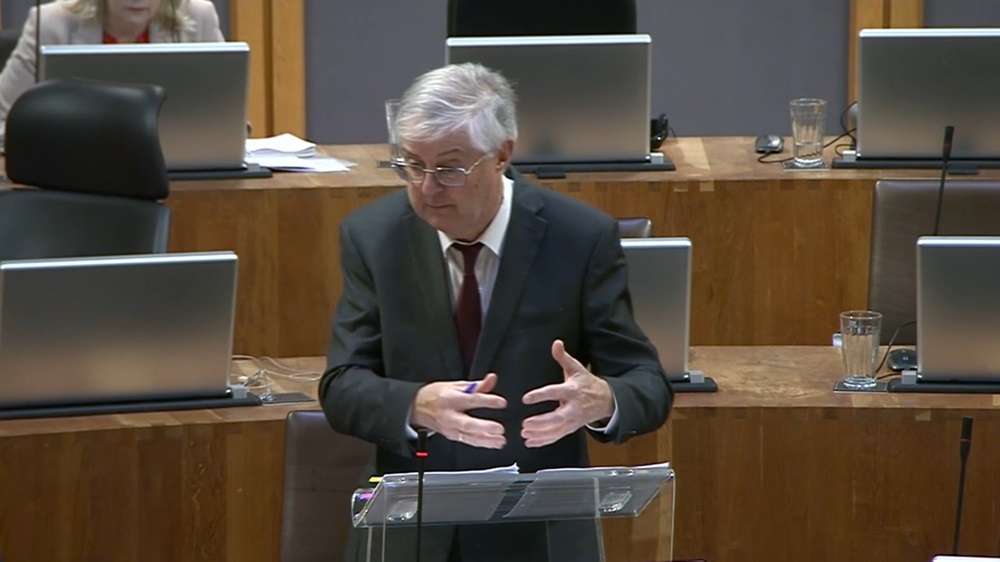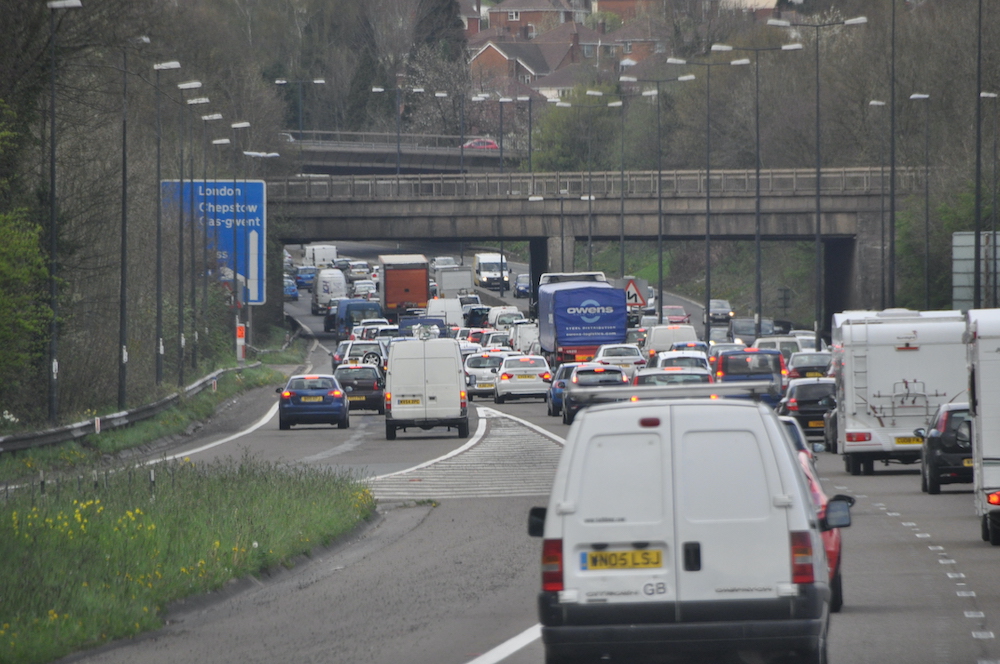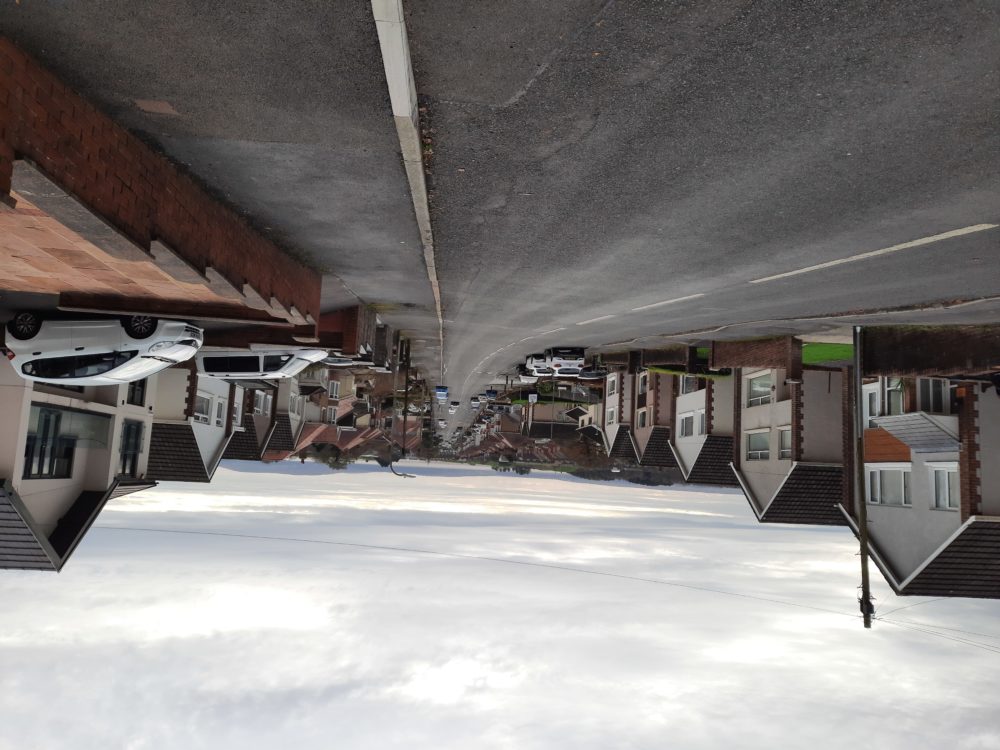Mark Drakeford’s budget cannot meet Welsh Transport needs

Professor Stuart Cole, CBE. Emeritus Professor of Transport Economics and Policy, Prifysgol de Cymru / University of South Wales
On December 10th Mark Drakeford will present his budget to the Senedd. This is the Welsh Government’s expenditure plan for 2025 – 26.
His task for transport is made particularly difficult because of the disappointing provisions for Wales in Rachel Reeves’ UK Budget published last month.
One of the key Welsh Government transport policy objectives has been satisfying ‘all of Wales’ transport needs, primarily through the provision of facilities for car, public transport, cycling or walking. It also must meet the freight transport needs for retailing and manufacturing.
Budgetary responsibilities between governments
The UK Budget directly affected the operation of our transport network and indirectly Welsh Government expenditure. It did this through increased public transport costs, revenue and viability, construction costs for the highways network, Valley Lines electrification and train leasing costs.
Apart from internal taxes such as the Land Transfer Tax, Welsh Government’s largest income source by far is the block grant based on the derided Barnett formula which does not balance funding with need. The 2025 – 26 grant of £21 bn is a £1.7 bn (3.8%) increase on 2024 – 25 or almost zero per cent in real Consumer Price Index terms.
Welsh Government transport expenditure, subject to Senedd approval, covers national bus revenue support, concessionary fares, TfW Rail services, the TrawsCymru bus network, (effectively determining bus fares) active travel and the national trunk road network.
It also supplements, alongside council tax income, local government transport expenditure on road infrastructure / maintenance, traffic management and bus revenue support.
HM Treasury rail funding policy: Wales v England
The UK Government reserves transport expenditure covering railway infrastructure work carried out by Network Rail. However, in England the UK Budget specified rail schemes such as the east – west line between Oxford and Cambridge and the Trans-Pennine line across northern England (£1.5 bn).
No such funding was specified for Wales such as the north and south Wales main line electrification and line speed increases. One might argue that Wales will get the inadequate (5%) Barnett consequential of that investment.
Underfunding by HM Treasury certainly applied to the Cardiff Valley Lines (the Metro) where of the £1.1 bn capital infrastructure only £125 m came from Westminster. And consequently, electrification was limited to less of the network than originally planned.
Adding insult to injury the costs (according to HS 2 Ltd/Department for Transport estimates) of the planned route to London totalling between £45 bn and £57 bn will not even have Barnett payments applied (This column 29 September 2024 – HS2 Double whammy for Wales).
Although of course this sum is by no means guaranteed to go towards transport investment – Mr Drakeford can allocate the block grant to any aspect of government funding. But these conditions considerably hinder his spending levels and options.
Spending priorities and options
From this year’s total income Mark Drakeford must decide the government’s spending priorities he will recommend to Cabinet. How much goes to transport will depend on how persuasive Ken Skates and his civil servants have been compared with the other Cabinet Secretaries. Mr Skates will in turn have many options; not all are affordable.
Big capital projects
New road schemes were halted in recent years and Ken Skates’ comments in the Senedd imply that the M4 around Newport is unlikely on cost grounds.
The A55 third Menai crossing is a possibility, and the A465 Heads of the Valleys Road must be completed.

The commuter railway system north of Cardiff is in the final stages of electrification and new trains are being introduced on all railway services except the Heart of Wales Line which will have active travel/ cycling refurbished 40-year-old trains.
Most of this money is now spent but future government expenditure will have to include capital repayments and interest, and train leasing costs.
Electrification of the south Wales main line west of Cardiff is now unlikely as the new signalling system currently being installed (paid for by HM Treasury) is designed for diesel powered trains.
Unfortunately, this is not a decision for our Finance Secretary (it is reserved to Westminster) unless Wales decided to fund capital expenditure on overhead wires and retrofitting trains from our own resources.
Locally reported issues with national implications
Politically, local issues often determining votes are those faced by Mr Skates at transport secretary’s questions in the Senedd.
Potholes
Potholes are costly for motorists and additionally dangerous for cyclists. Based on 2023 UK figures the estimated cost of the road surface repairs backlog in Wales is £800m.
TfW trains
To reduce overcrowding and generate more revenue train fares for the same journey may often vary between peak and off-peak times. But on some routes the fare variations have no logic.
The Transport Secretary has suggested these are the result of previous rail companies pricing regime but as the government now owns TfW rail it can easily remove such anomalies. However, as this may affect train revenue there is a budgetary role here.
The perceived disparity between capital expenditure on the railways in rural Wales and the Cardiff journey to work area clearly has north and west members of the Senedd in a state of high dudgeon.
Until financing rail infrastructure is transferred to Welsh Government there is little the Finance Secretary can do.
Rural buses
Maintaining an adequate bus network which meets the needs of those with no car or wishing to follow the government’s advice to use active travel – including buses would be an expensive process.
Withdrawal of buses not meeting commercial targets in both rural and urban areas have affected work opportunities as well as connections for medical, leisure and retail facilities. These are a funding priority.
Hospital bus services
Some hospitals have a large market (e.g. Singleton, Swansea also has university/ tourism customers) and so a frequent service. Some have no direct or infrequent bus services with patients and relatives/friends having long journeys including walking. Even car travellers face limited parking spaces.
Electric vehicle charging
Electric cars for 27% of Wales residents living in terraced housing have charging challenges from cables crossing pavements and no guaranteed parking space. outside your home.
Perhaps those in high places all have drives at home.

School bus expenditure
School bus expenditure accounts for 25% of the total education budget but cuts will affect access to schools and colleges with the peak bus operation unable to take up the shifted demand.
Competition for funding
The standard ministerial answer of ‘officials will be asked to consider the feasibility of the route in the context of budget availability and will consider as part of regional bus plans now being prepared’ is often a delaying tactic for policy objectives not financially achievable in a time span acceptable to residents and local representatives.
However, we consumers must be realistic in what Ken Skates can achieve with continued underfunding from Westminster when his department competes for those limited funds with health and education.
Support our Nation today
For the price of a cup of coffee a month you can help us create an independent, not-for-profit, national news service for the people of Wales, by the people of Wales.






Under Section 162 of The Highways Act 1980 it’s illegal to place a trailing cable across the pavement to charge an EV if you live in a terraced home. There is, however, a company based in Swansea that installs a capped ‘charge gulley’ to lay such a cable.
https://www.chargegully.com/
However, the Welsh Government has not made legislation or standards that local authorities can apply in Wales in the same way as the ‘dropped curb’ rules that currently exist.
An even bigger problem with flats: It’s almost as if they haven’t thought it through.
EVs can fill up at filling stations.
The real problem is Whitehall sees itself as a London government not a UK government. Until the UK government is physically separated and moved out of London this will never change.
The public transport system throughout the UK is failing the public. A recent train trip to London confirms that. However local transport is the same. Cardiff Bus, owned by the council, is hopeless. An irregular, unreliable and expensive service. Living 1.5 miles from the city centre and the bus service runs once an hour, when it turns up, and stops at 7.35 pm. Impossible to get home from work or leisure. Its third world. Funding for Wales may be unfair but there seems to be plenty of cash for vanity projects like cycle lanes, opening up the canal in the… Read more »
I live on Anglesey. The bus service is terrible. The drivers seem to run the time tables themselves and if they don’t want to run the last one they don’t. The last reliable bus home is 16:50 so if your job is in not flexible you can’t do it.
Still waiting for a good reason why the M4 Relief Road wasn’t built.